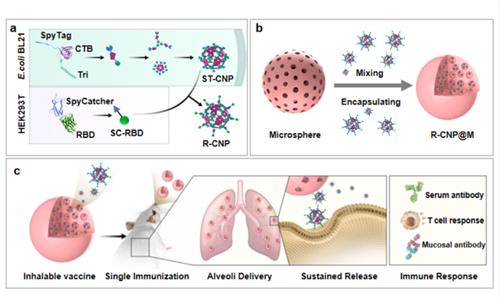Getting vaccinated is not just about ensuring you don’t fall ill, but also about saving those around you from getting sick.

— Graphics: Positive Parenting This is how an infectious disease with an r-naught of four spreads from one patient.
Protect yourself, protect your community
This is what we call herd immunity or community immunity. It is a key aspect of epidemic control.
To understand herd immunity, we need to be familiar with certain terms.
Firstly, we have to know the infectiousness of a disease, indicated by its basic reproduction number (R-naught or R0).
This can be defined as the expected number of new infections generated by one infectious individual in a fully vulnerable population without any control measures.
For example, an infectious disease with an R-naught of four means that one case is expected to generate four other cases.
The higher the R-naught, the more infectious the disease is.
Each infectious disease has its own R-naught and it may vary across populations and over time, depending on various factors.
The R-naught in turn determines the herd immunity threshold (HIT), which is the minimum level of vaccination coverage or minimum number of immune individuals in a population that must be achieved to produce herd immunity against a certain infection.
An easy way to calculate HIT is by using this equation: HIT = 1 – 1/R-naught.
Hence, to achieve herd immunity against a disease with R-naught of four, at least 3/4 or 75% of the population have to be immunised.
This calculation assumes that susceptible and infectious individuals in a population are equally in contact with one another and spread the infection in the same way.
From this, we can deduce that the more infectious the disease, the higher the R-naught, and thus, the higher the HIT, and the more the people that need to be vaccinated to achieve herd immunity in a population.
When enough people are vaccinated against a particular disease, they will be able to ‘protect’ those who are unable to be vaccinated from those who are infected.
For optimal benefit
Various other factors play crucial roles to ensure that optimal herd immunity can be achieved via vaccination.
They include:
> High vaccine effectiveness
This is key to attaining optimal herd immunity.
Vaccine effectiveness varies between different populations and regions.
However, not all vaccines stimulate lifelong immunity and this may decrease herd immunity over time.
The effect of waning immunity can be mitigated by increasing vaccination coverage or taking booster shots. >
Reduced transmission potential (or force of infection)
Vaccination efforts need to target the main reservoir of infection, i.e. groups who are most likely to get and spread the infection.
Low vaccine coverage among these groups may compromise herd immunity, even though overall coverage is high.
This also depends on the route of transmission of the pathogen.
> Appropriate vaccine uptake
Optimal herd immunity is more likely to be achieved when vaccine coverage is at the higher end of the HIT.
Another important factor is appropriate distribution patterns.
This can be achieved by targeting those who are highly exposed to the infection (e.g. healthcare workers) and vulnerable populations (e.g. infants and the elderly).
The timeliness in receiving the vaccine also impacts the effectiveness of the vaccination programme, and thus, herd immunity.
For example, in the United Kingdom, the occurrence of invasive pneumococcal disease in unvaccinated adults aged over 65 years has been reduced by 81% after the pneumococcal conjugate vaccine (PCV) was included as part of routine immunisation for infants under two years old.
Protecting the vulnerable
The best-case scenario is to have 100% vaccine effectiveness and coverage, but the reality is far from perfect.
No vaccine is 100% effective, and there are people who cannot get vaccinated or do not elicit strong immune responses from vaccines.
These include newborns, people allergic to certain vaccines, people with weakened or failing immune systems, or elderly with chronic diseases.
This is where herd immunity comes into play, providing indirect protection to these groups.
Optimal herd immunity via vaccination also counteracts waning immunity.
Protection with certain vaccines can diminish with time, e.g. pertussis vaccination starts to weaken after two years.
Thus, people with waning immunity are exposed to infection unless herd immunity is strong and vaccine uptake is sustained.
Apart from the vulnerable population, the following groups of people should also get vaccinated:
> Families and close contacts of those considered as vulnerable
> Caregivers of children, elderly
and sick patients > Healthcare or hospital workers.
When you get yourself vaccinated, you’re not only protecting yourself, but also your loved ones and other vulnerable individuals in the population.
As you can see now, vaccination is crucial and the safest way to achieve optimal herd immunity!
Datuk Dr Musa Mohd a paediatrician and Universiti Putra Malaysia lecturer. Datuk Dr Musa Mohd Nordin is a consultant paediatrician and neonatologist. This article is courtesy of the Malaysian Paediatric Association’s Positive Parenting programme in collaboration with expert partners. For further information, please email starhealth@thestar.com.my. The information provided is for educational and communication purposes only, and it should not be construed as personal medical advice. Information published in this article is not intended to replace, supplant or augment a consultation with a health professional regarding the reader’s own medical care. The Star does not give any warranty on accuracy, completeness, functionality, usefulness or other assurances as to the content appearing in this column. The Star disclaims all responsibility for any losses, damage to property or personal injury suffered directly or indirectly from reliance on such information.
The Star Malaysia17 Dec 2023By Dr HUSNA MUSA and Datuk Dr MUSA MOHD NORDIN
By Dr HUSNA MUSA and Datuk Dr MUSA MOHD NORDIN
https://www.thestar.com.my/news/nation/2023/12/17/remember-to-wash-your-hands
Related:





